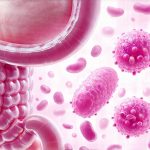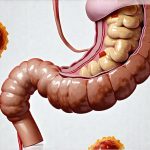Diarrhea, characterized by frequent bowel movements with loose, watery stools, is a common digestive issue that most people experience at some point in their lives. It can be triggered by various factors including infections, food intolerances, medications, or even stress. However, dietary choices play a significant role, and understanding which foods are more likely to induce diarrhea can help individuals proactively manage their gut health and minimize discomfort. This article explores commonly implicated foods that often contribute to diarrheal episodes, offering insights into why they cause such reactions and how to navigate them.
The digestive system is a complex network, and sensitivity levels vary greatly from person to person. What causes diarrhea in one individual may not affect another. Recognizing personal triggers through careful observation of dietary habits alongside symptom tracking can be incredibly beneficial for long-term management and preventative measures. This information aims to provide a broad understanding of potential problem foods, rather than definitive diagnoses or treatment recommendations.
Common Culprits: Foods & Diarrhea
Many foods can contribute to diarrhea due to their inherent properties or how our bodies process them. High-fat foods, for instance, require more effort to digest and can speed up gut motility, leading to looser stools. Similarly, certain sugars, like fructose and sorbitol, are poorly absorbed by some individuals, drawing water into the intestines and causing a laxative effect. Dairy products pose issues for those with lactose intolerance while spicy foods can irritate the digestive tract.
Ultimately, identifying individual sensitivities is key; what triggers diarrhea differs significantly between people.
Dietary Factors & Gut Health
A healthy gut relies on balanced flora and efficient digestion. Foods that disrupt this balance or overwhelm the digestive process are more likely to cause problems. This includes not only specific food types but also quantity – overeating, even seemingly benign foods, can sometimes lead to diarrhea. Additionally, combining certain foods can exacerbate issues; for example, pairing high-fat foods with sugary drinks may intensify digestive distress.
Foods High in Fat
Fatty foods generally take longer to digest and can stimulate intestinal contractions, accelerating the passage of stool. This rapid transit time doesn’t allow sufficient water absorption, resulting in looser stools. Examples include fried foods, greasy fast food, rich sauces, and even large quantities of nuts or avocados. The type of fat also matters; some individuals find saturated fats more problematic than unsaturated ones.
Dairy Products & Lactose Intolerance
Lactose intolerance stems from a deficiency of the enzyme lactase, responsible for breaking down lactose (milk sugar). When undigested lactose reaches the colon, bacteria ferment it, producing gas and drawing water into the intestines – both contributing to diarrhea. Symptoms vary depending on the degree of lactase deficiency and can range from mild discomfort to severe digestive upset. Lactose is found in milk, cheese, yogurt, and many processed foods.
Sugars & Artificial Sweeteners
Certain sugars are poorly absorbed by some individuals. Fructose, commonly found in fruits and honey, can cause diarrhea if consumed in excess or if the body struggles to process it efficiently. Sugar alcohols like sorbitol and mannitol, often used as sugar substitutes in “sugar-free” products, have a similar effect due to their osmotic properties – they draw water into the intestines. This is why excessive consumption of fruit juice, candies sweetened with sorbitol, or diet sodas can lead to diarrhea.


















